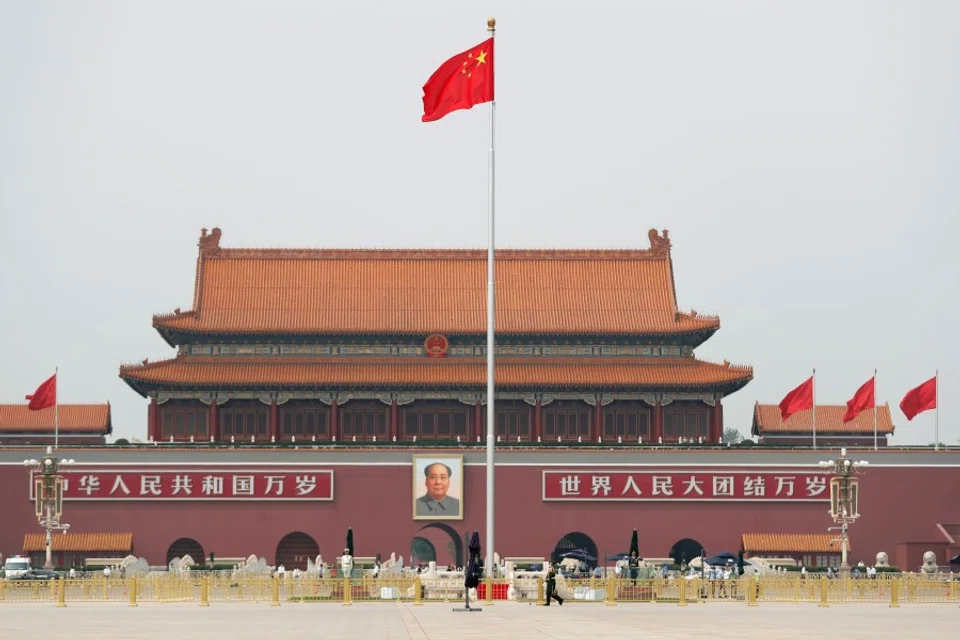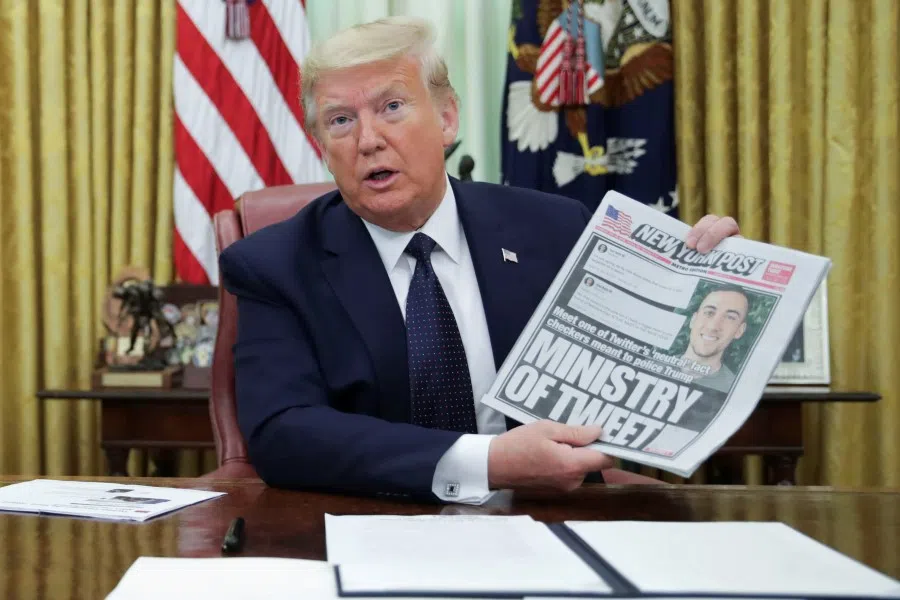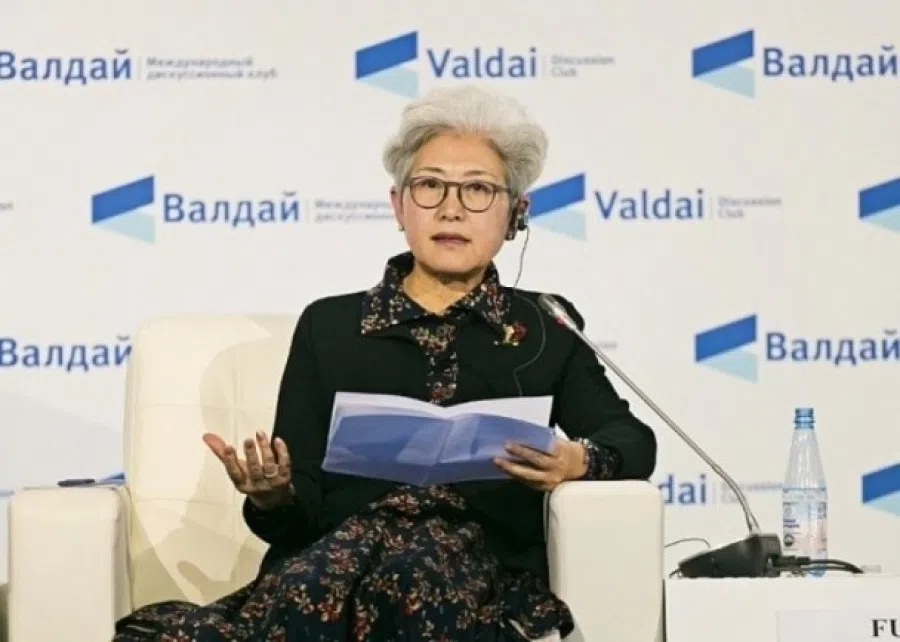China wants 'co-opetition' with the US, but can that happen?
Japanese academic Shin Kawashima says that China had until recently reined itself in while working to form new power relations in the face of friction with the US. Since the spread of the coronavirus however, it has become more brazen in criticising the US. While it has said several times that it is not out to replace the US and that it seeks to build a "shared future for mankind", will China stay the path of seeking cooperation amid competition?

Amid the spread of the coronavirus across the globe, China's foreign policy is changing. "Solidarity and cooperation" is a prominent slogan in its publicity efforts, as it engages in foreign aid diplomacy by supporting global efforts to fight the coronavirus. However, as the rest of the world is fully focused on dealing with the coronavirus, China is taking advantage of unresolved issues to change the status quo.
One such move is building infrastructure in countries along the Belt and Road Initiative (BRI). Even as the coronavirus spreads, China is stepping up on providing public infrastructure to the international community with regular launches of new BeiDou Navigation Satellite System (BDS) satellites*. In terms of sovereignty in the East and South China Seas, China has declared new administrative districts in the South China Sea, leading to fresh frictions with its neighbours.
However, from late March to early April, China's tone changed.
However, the greatest shift in the international environment with regards to China involves developed countries, whose impression of China has worsened. In particular, China-US relations have deteriorated.

To put it simply, previously the US criticised China, and China reined itself in while still working to form a new framework of power relations. However, the situation has changed. Seizing on US President Donald Trump's intensifying criticism of China, China has also started to publicly criticise the US, putting US-China relations in very bad shape. This can be seen as a major shift by China in its policy towards the US, under the new framework of international relations.
Of course, the criticisms of China on various occasions began some time ago, led by Trump's tweets. But China has stuck to its basic stance of building a new framework of international relationships, and making rebuttals based on facts. This was the case as of early 2020.
However, from late March to early April, China's tone changed. In mid-March, China's Foreign Ministry spokesperson Zhao Lijian tweeted that the coronavirus may have been spread in China by US troops, sparking major backlash. But in late March, it was reported that Chinese ambassador to the US Cui Tiankai had refuted Zhao. And in early April, Zhao effectively withdrew his comment.
Fu (Ying) felt that besides decoupling and confrontation, another outcome for China-US relations is "co-opetition" (竞合) or limited, controlled competition, while cooperating in multiple areas.
However, this also shows a difference of opinion within China's Foreign Affairs Ministry. By mid- to late April, riled by criticism of China by Trump and others, China's rebuttals against US comments grew stronger. In late April, Reference News reported a statement from Fu Ying, the vice-chairperson of the National People's Congress Foreign Affairs Committee, seen as one that clearly expresses China's current perception of the US.
Fu felt that besides decoupling and confrontation, another outcome for China-US relations is "co-opetition" (竞合) or limited, controlled competition, while cooperating in multiple areas. She said, "We need to transcend traditional thinking and find a new path, one that hopefully can be defined by mutual respect, equality and justice, and mutually beneficial cooperation... Of course, this will not be easy."

...other countries should not look at what China is doing from the perspective of hegemonic competition, and China does not intend to take the place of the US in claiming hegemony.
What she might have wanted to say is that while China has not abandoned its goal of building new power relations, achieving that goal is not easy. The US and China in "co-opetition" means that they should cooperate as well as work together to control competition. However, Fu Ying said the US does not agree with China's policies and has blown an ideal opportunity for cooperation in the fight against the coronavirus, which has worsened bilateral relations and led to a move towards decoupling.
Basically, China remains critical of the US. Its view of the US is that given the US response to the coronavirus, all signs indicate a clear decline of US hegemony. And China is saying: although it has overcome the first wave of the coronavirus and is now in a position to help others, other countries should not look at what China is doing from the perspective of hegemonic competition, and China does not intend to take the place of the US in claiming hegemony.
The intention of this essay was to get the US on the side of US-China cooperation, and at the same time to express China's stern view of the US, and to point out the difficulties in cooperation.
It is not clear how the coronavirus will develop, but US-China relations are deteriorating, mostly in terms of rhetoric. If China modifies the new power relations and becomes confrontational towards the US, that would lead to huge changes in the post-coronavirus era, not just in issues of the Korean peninsula and Taiwan Straits, but possibly also the Asia-Pacific region.
Note:
*According to the BeiDou Navigation Satellite System (BDS) official website, BDS is designed to meet China's "national security, economic and social development" needs, and it provides "all-time, all-weather and high-accuracy positioning, navigation and timing services to global users". The Beidou system has been constructed in three phases. BDS-1 and BDS-2 that serves China and the Asia Pacific region respectively, are already completed and in operation. BDS-3 will launch its last satellite (29 already in orbit) in June, and this system will serve global needs.





![[Big read] When the Arctic opens, what happens to Singapore?](https://cassette.sphdigital.com.sg/image/thinkchina/da65edebca34645c711c55e83e9877109b3c53847ebb1305573974651df1d13a)